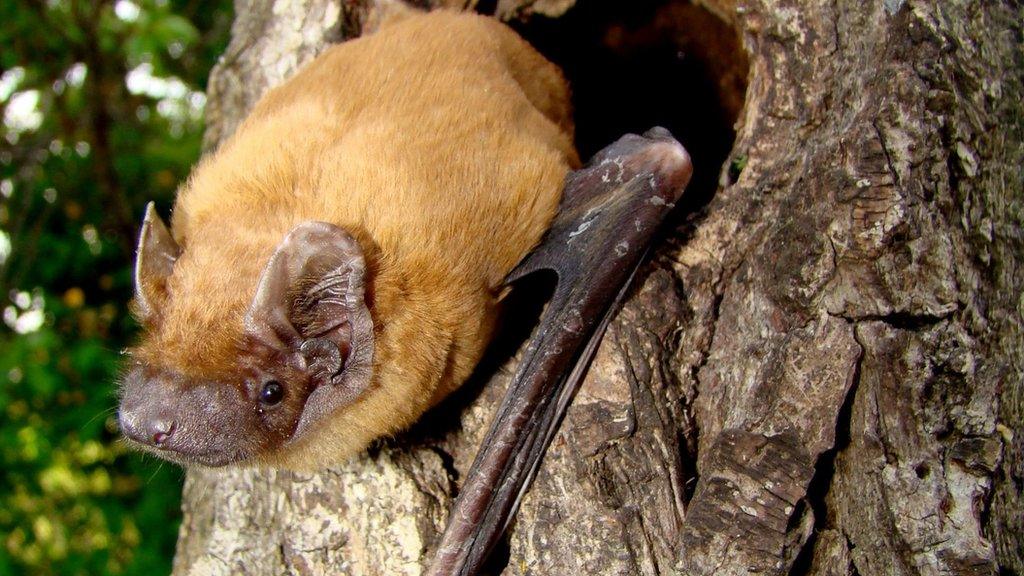Climate change: Butterflies and burrowers could be at risk because of mild UK winter
- Published
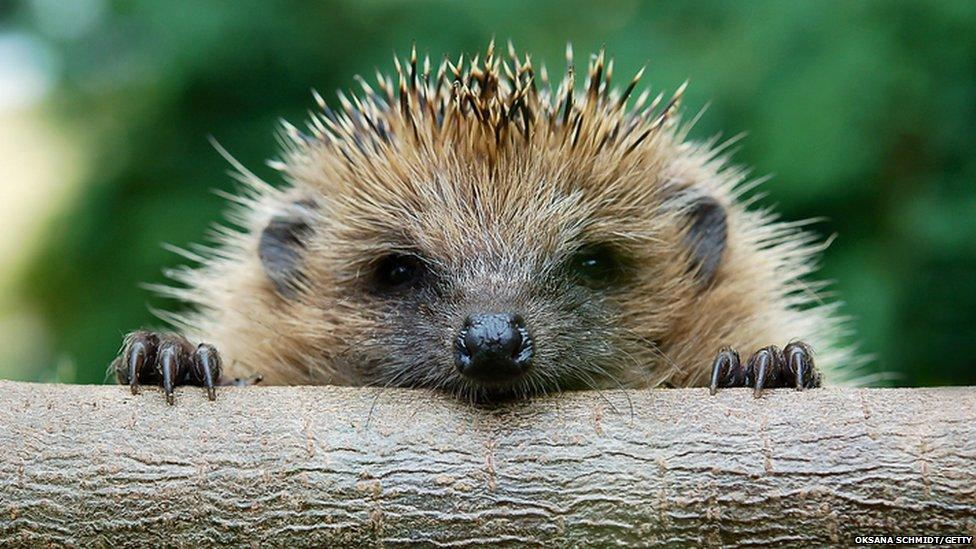
Sleepy hedgehogs coming out of hibernation early could have a hard time over the coming months
Animals and insects in the UK could be put at risk due to the mild winter we've had so far.
That's according to experts at the Woodland Trust.
Butterflies, hedgehogs and bats could all be affected as the warmer weather has meant that their hibernation has been disrupted and some flowers are blooming early.
This New Year's Day was the warmest on record, and some scientists think that, due to climate change, this will continue to be an issue in future.
Why is this happening?
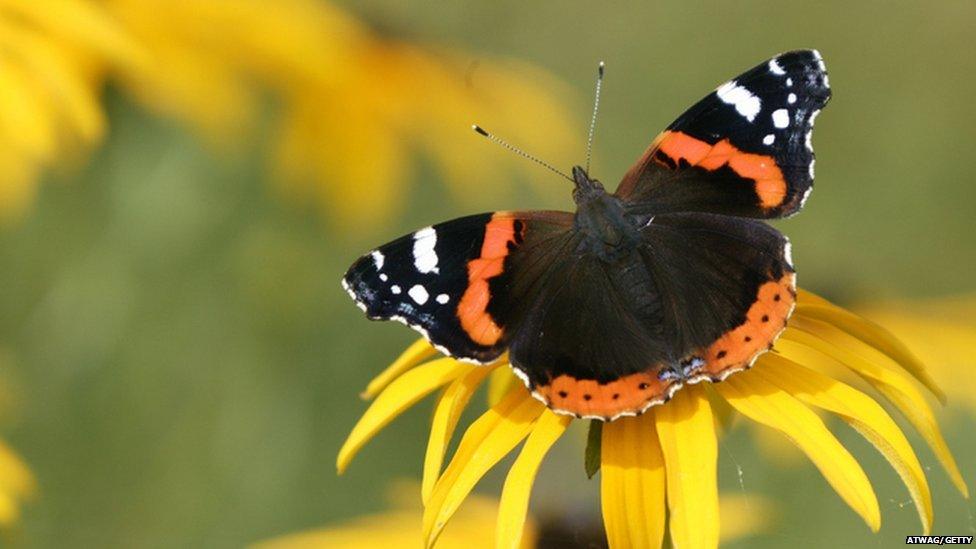
This is a red admiral butterfly, one species that could be affected by the warmer winter weather
The seasons operate on a cycle, and lots of animals work to it too.
If this cycle shifts slightly, it can mean bad news for the creatures who rely on the seasons for their survival.
For example, if the weather gets warmer sooner, animals that go into hibernation could wake up sooner than they should.
Grahame Madge, a climate spokesperson for the Met Office, explained why this could be a problem: "Abnormal warm spells during winter can encourage species out of hibernation.
"Butterflies such as red admirals and small tortoiseshells and other insects can be particularly challenged as they can emerge largely without access to life-saving food sources like nectar.
"If the warm spell is followed by a return to colder conditions, the hibernating individuals will have used up valuable energy reserves without being able to replace them, possibly with disastrous consequences."
What else could be affected?
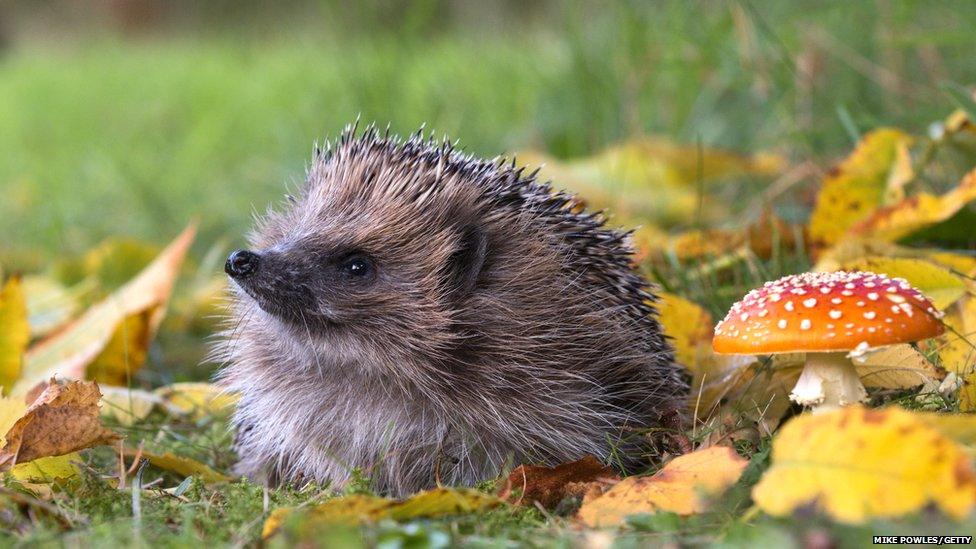
Hedgehogs weren't always called that - they used to be called Urchins!
It's not just butterflies - there are plenty of other creatures in the UK that could be emerging from hibernation too soon, such as hedgehogs.
They will also face a similar problem to butterflies, as they might also not be able to access the food they need to make up the excess energy lost when they were sleeping through the winter.
Pollinators like bees could also be impacted if there isn't enough food available to them when they wake up. This will also have a negative knock-on effect on the plants they usually pollinate.
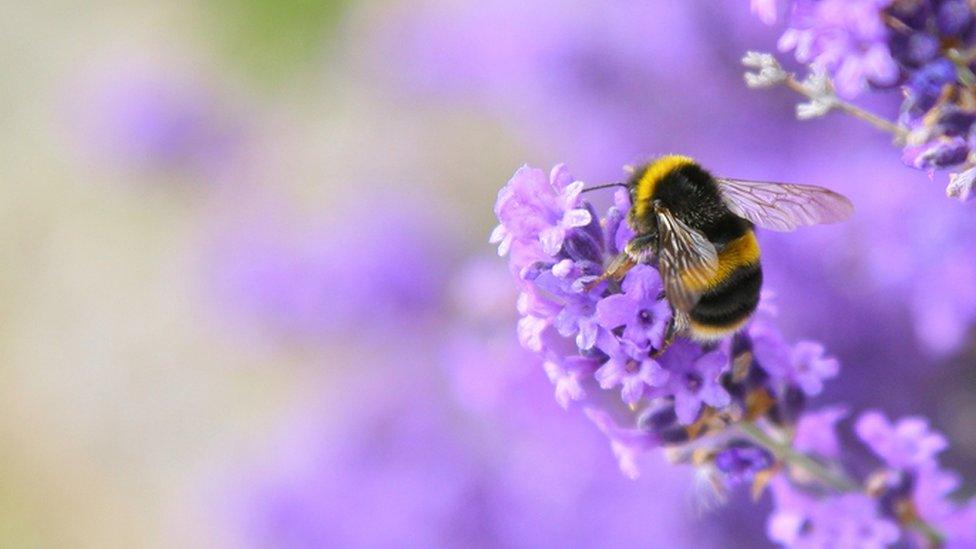
Lorienne Whittle, from the Woodland Trust, explained: "If spring is early and they awake but find no or few flowers blooming, there's a chance there won't be enough pollen and nectar to feed on.
"This has consequences not only for the insects, but also the pollination of many flowers. We're asked to leave dandelions in our lawns, for example, because it's one of the first food sources and really important for early emerging bees."
Without winter frosts, some pests can now survive all year round, which is a real pain for gardeners and farmers.
Will this keep happening in the future?
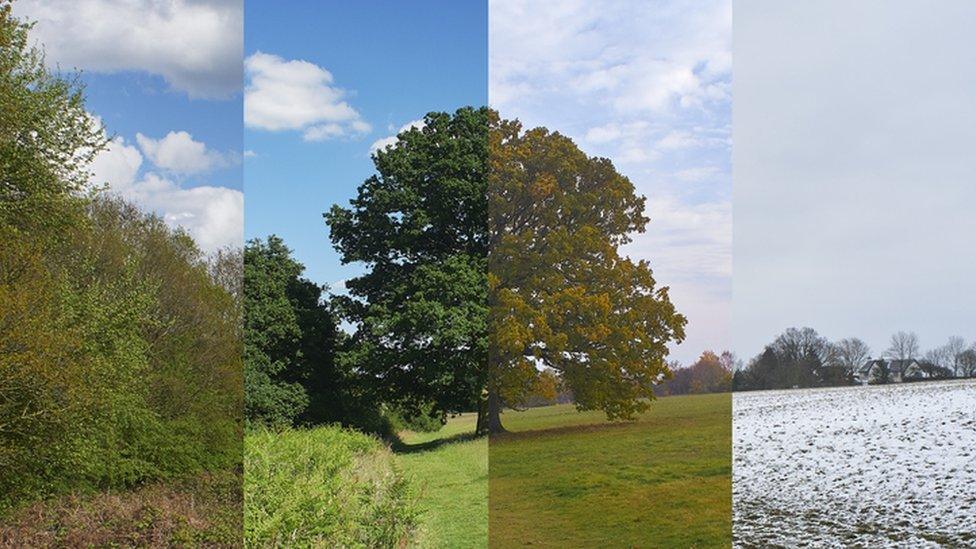
Lorienne says that milder winters and earlier springs are going to start becoming "the new normal".
She works on a project called the Nature's Calendar. It asks people to record events that mark the start of the seasons, and their historical data shows that, since 1998, spring events have been recorded as occurring 8.7 days earlier than in the period between 1891 to 1947.
Lorienne said: "For us, 8.7 days doesn't seem like a lot over one hundred years, but for wildlife, it can cause a mismatch in the timing of their key life events."
- Published20 January 2021
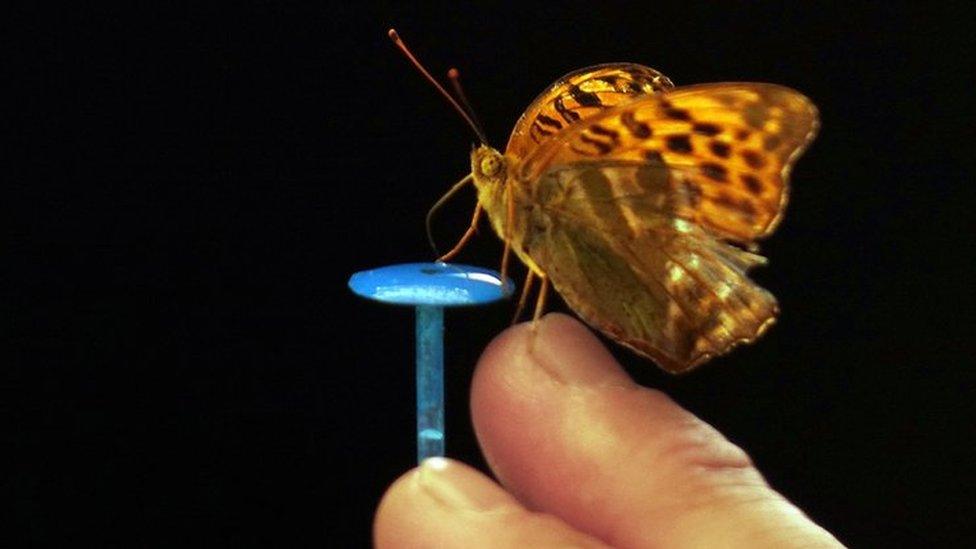
- Published10 July 2021
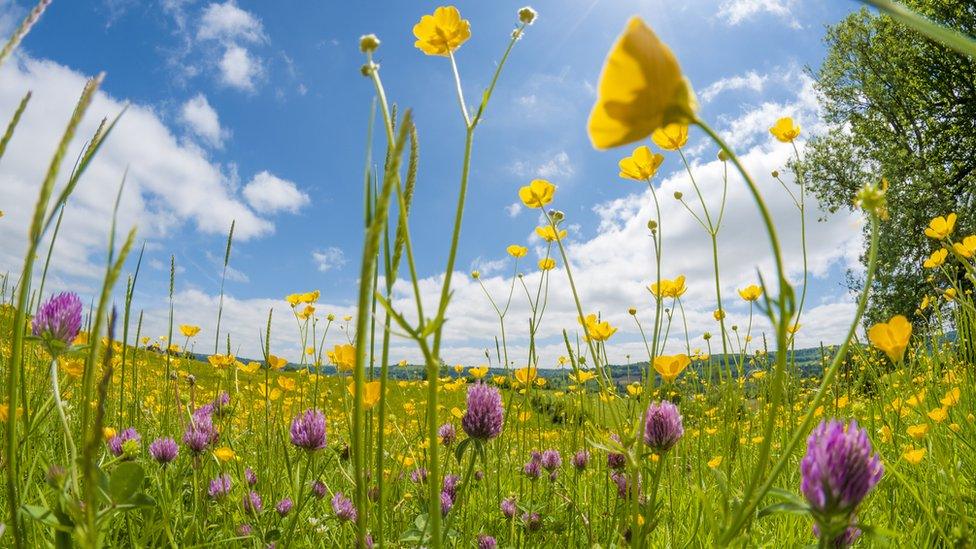
- Published5 November 2020
